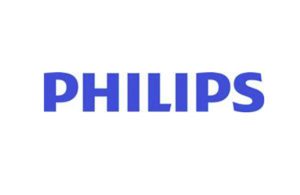 Royal Philips (NYSE: PHG, AEX: PHIA) is launching a significant restructuring amid its serious CPAP recall, supply chain woes and other macroeconomic challenges.
Royal Philips (NYSE: PHG, AEX: PHIA) is launching a significant restructuring amid its serious CPAP recall, supply chain woes and other macroeconomic challenges.
The Dutch medtech giant announced today that it would cut its workforce by roughly 4,000 roles globally — representing about 5% of the headcount listed in its most recent annual report.
The move comes nine days after Roy Jakobs took over the corner office at Philips. Last week, Jakobs publicly apologized for the Philips Respironics recalls. The recalls involve millions of CPAP and BiPAP ventilators and other respiratory devices.
Today, Jakobs said Philips is not living up to shareholder expectations:
“My immediate priority is, therefore, to improve execution so that we can start rebuilding the trust of patients, consumers and customers, as well as shareholders and our other stakeholders. We will do this by first further strengthening our patient safety and quality management and addressing the various facets of the Philips Respironics recall; second, by urgently improving our supply chain operations so that we can deliver on our strong order book and improve performance; and third, by simplifying our way of working to improve productivity and increase agility. This includes the difficult but necessary decision to immediately reduce our workforce by around 4,000 roles globally, which we do not take lightly and will implement with respect towards impacted colleagues. These initial actions are needed to start turning the company around in order to realize Philips’ profitable growth potential and create value for all our stakeholders.”
PHG shares were down more than 1% to $12.90 apiece during morning trading on the NYSE. Its stock traded similarly today on the Amsterdam exchange. MassDevice‘s MedTech 100 Index, which includes stocks of the world’s largest medical device companies, was up slightly.
Sales down 5% in Q3 as Philips swings to a loss
Also today, Philips announced €1.5 billion in non-cash goodwill and R&D impairments. The amount includes €1.3 billion that the company is setting aside for the Respironics business. Talks continue with the U.S. Department of Justice and the FDA over a proposed consent decree.
In addition, Philips expects €300 million in severance and termination-related costs and other restricting-related expenses in coming quarters. (The company expects to save €300 million a year from the restructuring.)
As a result of the large impairment, Philips lost €1.5 billion in Q3, versus a profit of €358 million in Q3 2021.
Q3 sales fell 5% year-over-year to €4.3 billion. On top of the Respironics recall, Philips is grappling with operational and supply challenges, inflationary pressures, the COVID situation in China and the Russia-Ukraine war.
More about the Philips Respironics recall
Since April 2021, the FDA has received more than 69,000 medical device reports, including 168 reports of death, related to sound abatement foam breaking down in CPAP and BiPAP ventilators and other respiratory devices. (Note: The FDA’s MDR system is a passive system with limitations.)
In addition to the consent decree talks with the DOJ and FDA, Philips also faces lawsuits.
Philips said today that it has produced roughly 4 million replacement devices and repair kits for the sound abatement foam recall. Philips Respironics’s goal is to complete about 90% of the production and shipments to customers this year.
However, additional problems are coming out when it comes to the company’s respiratory devices. For example, Philips Respironics has warned about CPAP or BiPAP therapy masks with magnetic headgear clips or straps. The magnets could negatively interact with implantable, metallic medical devices. FDA designated the masks recall as Class I last week.
Philips is taking additional steps to address challenges
In addition to the restructuring and resulting layoffs, Philips announced other actions it is taking to revive its performance:
- It’s tackling supply chain challenges through dual sourcing, supplier consolidation, warehouse footprint rationalization, and more;
- When it comes to R&D, Philips is shifting its focus to fewer high-impact projects in the innovation pipeline;
- Philips is seeking to boost quality control by enhancing processes, increasing capabilities and boosting product management.
Also, the company is securing a €1 billion credit facility to further strengthen its liquidity. On top of that, Philips is returning to the original settlement dates in 2023 and 2024 for a share repurchase program, instead of in 2022 as earlier announced.
Philips now expects a mid-single-digit comparable sales decline in Q4 2022.